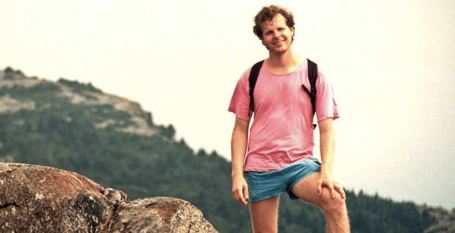In 1988, 27-year-old gay American mathematician Scott Johnson’s body was found at the base of a cliff on Sydney’s northern beaches.
Now, a man has been convicted of murder and sentenced to 12 years imprisonment.
Sydney resident Scott White (51) was convicted of Johnson’s murder earlier this year after he pleaded guilty in court.
White subsequently retracted the admission of guilt and his lawyers have filed an appeal against the conviction.
The case had remained unsolved for over three decades, until White’s ex-wife alerted the police in 2019 about his role in the murder. According to the evidence provided by the ex-wife, White had bragged about “bashing gays” to her and the couple’s children.
In White's defence, his lawyers stated that White himself was gay. He was 18 at the time of the murder and was afraid of his brother finding out about his sexuality. White claimed that he had met Johnson at the Brighton hotel and both had then gone to the clifftop, which was a well known gay beat.
Johnson’s murder was one of the unsolved cases during the spate of anti-gay and anti-trans hate crimes that took place in Sydney between 1970 and 2010.
Johnson had moved to Australia with his partner of nine years Michael Noone. He was based in Canberra and was living with Noone and his parents at the time of the murder.
Johnson’s body was found on the morning of December 10, 1988 at the base of a cliff at Blue Fish Point, near Manly’s North Head on Sydney’s northern beaches. The police initially concluded that Johnson had died by suicide and a second inquest in June 2012 returned an open finding. A third inquest in 2017 found that Johnson was murdered and his killing was a gay hate crime.
In 2018, Australian police announced a $1 million reward for information and in March 2020 Johnson’s brother Steve Johnson, who lives in the United States, matched the reward offered, bringing the total reward to $2 million.
Homicide detectives arrested White in May 2020 and he was charged with the murder.
What’s life like for LGBTQ people who live in Australia?
What’s life like for LGBTQ people who live in Australia? Let's take a look at some of the key equality indicators.
Is it legal to be gay?
Yes. The United Kingdom invaded the continent we now know as Australia in 1788. The colonies that they established inherited their laws from the UK – including the Buggery Act of 1533 that made sodomy a crime punishable by death.
Over time, the colonies developed into states, and a federation was created so that they could operate as one country.
Sodomy remained a crime punishable by death until 1949 (some states removed it earlier than others).
Being gay remained a crime in Australia until 1997 (although some states began the repeal process in 1975).
It is now legal to be gay in Australia.
Is there anti-discrimination legislation in place?
Yes. Comprehensive anti-discrimination legislation was implemented across all states in Australia in 2013. Prior to that, the anti-discrimination protections had been evolving (from around 1986) but had been fragmented.
Is there marriage equality?
Yes. Following a public vote in 2017, Australia has embraced marriage equality.
What’s life like for LGBTQ people who live in Australia?
While there are still isolated incidents of homophobia and anti-gay violence, Australia is a good place to be gay.
You will find gay people living openly in communities across the country (not just the larger cities), and media representation of LGBTQ characters is generally positive. There are numerous Pride celebrations held across the country.
However, LGBTQ people from Indigenous communities have poorer health outcomes and face additional barriers to living openly.x












 Printable Version
Printable Version

















Reader's Comments
Be the first to leave a comment on this page!
Please log in to use this feature.